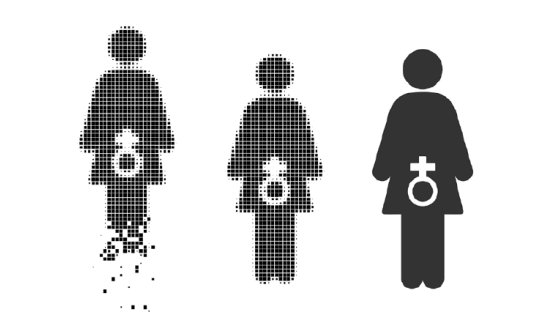
Sex may not be a concern when first being diagnosed with cancer, but with time, questions will arise about sex during and after cancer treatment. We asked oncologist and sexuality expert Daniel Vorobiof, M.D., Medical Director of Belong.Life, an international online social network for patients with cancer, caregivers, and healthcare professionals, to explain some issues that all patients with cancer and their partners should know.
1. What are some of the misconceptions related to sex and cancer?
One of the main misconceptions surrounding sex and cancer is that patients with cancer shouldn’t be worrying about sex. Although many people undergoing cancer treatments may have a low libido (or sexual desire), it doesn’t mean that they will never be sexually motivated again. Therefore, people should understand how cancer treatment may affect their sexuality during and after their treatment.
Another misconception is that sex is only for the young. Patients of all ages can enjoy sex, and older patients should feel comfortable asking their doctors how their treatment will affect their ability to have sex.
Other misconceptions are that women can’t get pregnant, or men can’t get a woman pregnant, after undergoing chemotherapy, and that men shouldn’t have sex after treatment, as we’ll discuss later in more detail.
There has been a shift in the way doctors address sexuality with their patients with cancer. These days, we tell our patients that sexual activity is fine during cancer treatment, if the level of interest, energy, and comfort allow that.
Remember that it’s not just the sexual act itself, but also the hugging, kissing, and holding hands that can make us feel good and can have a positive impact on the overall well-being of a person. My hope is that by opening this line of communication, patients will feel comfortable talking with their doctors to quell any misconceptions they may have.
2. Can I have sex during cancer treatment?
Yes, you can have sex during cancer treatment, but you should adjust to the circumstances and know any potential problems. Different types of cancer treatments can have different effects on sexual function. For example, after surgery that involves the pelvic area in men and in women, you will need to allow extra time to heal before engaging in sex, and then remain cautious about the risk for infection.
Similarly, if you are immunocompromised and are receiving active treatment for cancer, you are at increased risk for an infection, which can be transmitted during sex from your partner or vice versa. And if you are receiving chemotherapy, which reduces the platelet counts in your blood, you need to be extra careful with any extreme friction or rubbing that may cause a skin or mucosal abrasion or injury, which could bleed and take a longer time to heal.
3. What are some of the sexual changes during cancer treatment?
For women, the changes that can affect sexuality are mostly related to vaginal dryness and inflammation or sensitivity around the vulva. These are common issues in women who have had gynecologic surgeries or those who are receiving chemotherapy or hormonal therapy. Decreased sensation in the genital area and vaginal dryness can make sexual intercourse painful and unpleasant for women. Using a cream or a gel can relieve the discomfort and therefore sex is more enjoyable.
In men, the most common sexual issue related to cancer treatment is erectile dysfunction. Erectile dysfunction can manifest as the inability to achieve or maintain erections or having weak erections that result in less satisfying orgasms. A loss of libido or lack of energy is also common in men and in women who are undergoing cancer treatment.
4. Can I get pregnant when I have cancer, and should we use birth control to prevent pregnancy?
Yes, women can get pregnant during cancer, and men with cancer can still get women pregnant. As mentioned earlier, it is a misconception that a woman cannot get pregnant when undergoing cancer treatment or after treatment, although this can certainly happen. Having chemotherapy or radiation therapy does not automatically make a woman infertile.
In men, even in circumstances in which a man may think he is not producing sperm, as after surgery for urinary tract cancer, pregnancy can still happen, so continue using birth control if pregnancy is not desired.
5. As a man undergoing cancer treatment, can I have sex with my pregnant wife/partner?
Yes, but with a caveat. We know that most intravenous chemotherapy drugs can be excreted in the semen, possibly for up to 72 hours. Therefore, we recommend not having unprotected sex for 4 or 5 days after receiving intravenous chemotherapy.
And as noted earlier, some of the physiologic changes during cancer treatment, especially erectile dysfunction, may lead to difficulties during sex. Treatments are available today, so this should be addressed with your treating doctor.
6. What are some of the sexual side effects of cancer treatment, including chemotherapy, radiation, immunotherapy, or hormone therapy?
Different types of treatment can lead to different side effects. During surgery, specifically surgery in the male pelvic area for cancers such as prostate, rectal, or bladder, many nerves and blood vessels are being cut, which can lead to erectile dysfunction and loss of sensation in the affected area. When reproductive organs (the testes, the prostate, the ovaries) are surgically removed, it can cause hormonal changes and the need for hormone replacement therapy.
Depending on their gender, patients receiving chemotherapy or hormone therapy may have early menopause, loss of libido, vaginal dryness, fertility issues, and erectile dysfunction, which may last for a prolonged period.
Patients who undergo radiotherapy may have fewer side effects than those receiving chemotherapy, but the side effects of radiotherapy often last a very long time and can even become permanent. Radiotherapy to the cervix, vagina, or the pelvis area can result in local tissue becoming hard and in vaginal dryness. Skin sensitivity in the area affected by radiotherapy is also common.
In addition, all types of cancer treatments can have side effects that are not just physical. Mental or emotional side effects, such as anxiety or depression, resulting from a cancer diagnosis and treatment can negatively affect sexual function and should be treated.
7. Does cancer treatment affect my fertility?
Fertility issues in men and in women are mainly caused by damage to DNA, which is induced by radiation and chemotherapy. We have been treating patients with chemotherapy for the past 50 years and have a good understanding of what can happen 5 or 10 years after treatment; we know that many patients will have fertility issues.
Therefore, men who are concerned with fertility can bank their sperm before starting radiation or chemotherapy. Similarly, women who are concerned with future fertility can harvest their eggs, so long as it does not delay the needed treatment too long.
Immunotherapy is a relatively new type of treatment, so its impact on fertility is not yet well-known. We need more time to understand what happens to young people 5 or 10 years after treatment with immunotherapy and how it affects fertility for the short- and long-term.
8. How does breast cancer affect my sexuality, especially if my breasts were removed? What about ovarian or cervical cancer?
The overwhelming majority of the patients with breast cancer that I treat feel that having their breasts removed may affect their sexuality. Often, they are depressed or anxious about it, but eventually they manage very well. Not every person will react that way. In my experience, when a woman fully understands why her breasts are removed, she has an easier time coping. Reconstructive surgery can also help women regain confidence over their sexuality, regardless of age.
Navigating sexuality related to other gynecological cancers, such as ovarian or cervical cancer, can be more difficult. For example, in ovarian cancer, the ovaries, which produce estrogen, are removed, thereby reducing the female hormones in the body. This means a young woman is now in early menopause, and older women are in a profound menopause, which reduces the woman’s libido.
9. How does testicular cancer affect my sexuality?
Chemotherapy for testicular cancer can cause infertility, but more than half of the patients will regain their fertility by 2 years after treatment.
Radiation causes local damage to men with testicular cancer. However, usually, testicular cancer affects only one testis, and the other is still functioning properly, so the impact on sexuality is not serious or permanent. During the surgical removal of the affected testis, a small prosthesis can be placed where the testicle was removed, which can help with the man’s confidence about his body.
Men with bilateral testicular cancer, however, will need hormonal treatment, because removing both testes removes the primary male hormone, testosterone. Such men can receive a monthly injection of testosterone replacement. In these men, erectile dysfunction is common, and we cannot say with certainty that the problem will improve with time. This is something that men may have to live with for the rest of their lives.
10. Are there other important issues patients with cancer should be aware of?
I believe that communication about sexuality is extremely important. It’s not just communication between doctors and patients, but rather between patients and their partner.
A sexual side effect is like any other type of side effect. It doesn’t have only physical implications, but also emotional. A patient may need help from a psychologist or a sexologist to start the conversation, but the key is that we need to communicate. This is extremely important especially when dealing with cancer.
Key Points
- Sexual activity is fine during cancer treatment, if the level of interest, energy, and comfort allows it
- Different treatments come with different side effects, so consult with your medical team before engaging in sexual activity
- A loss of libido or lack of energy is common in men and in women who are undergoing cancer treatment
- Women can get pregnant during cancer, and men with cancer can still get women pregnant during treatment
- We need more time to understand what happens to young people 5 or 10 years after treatment with immunotherapy and how it may affect fertility














